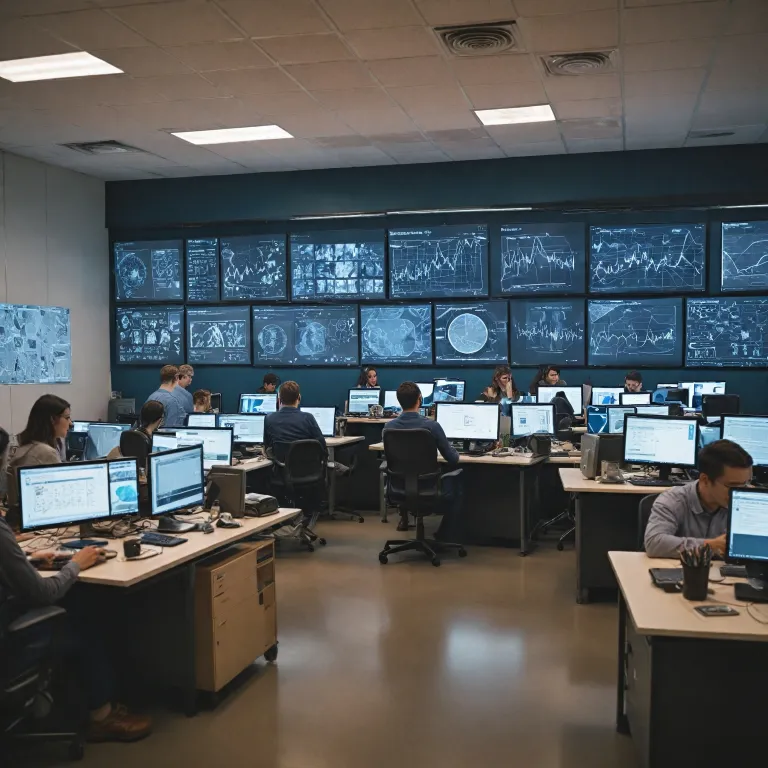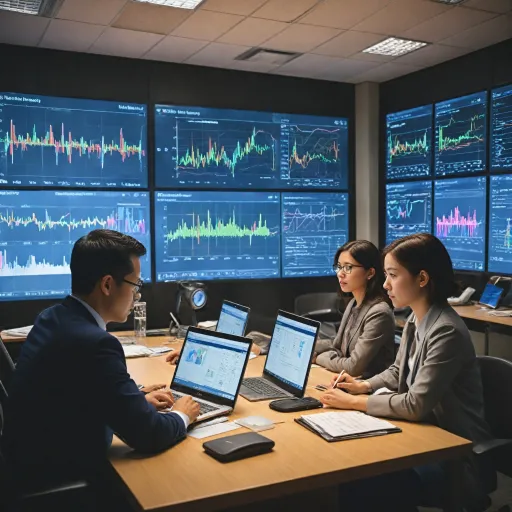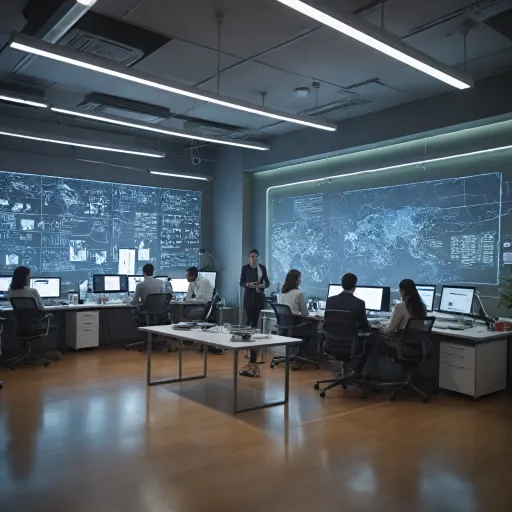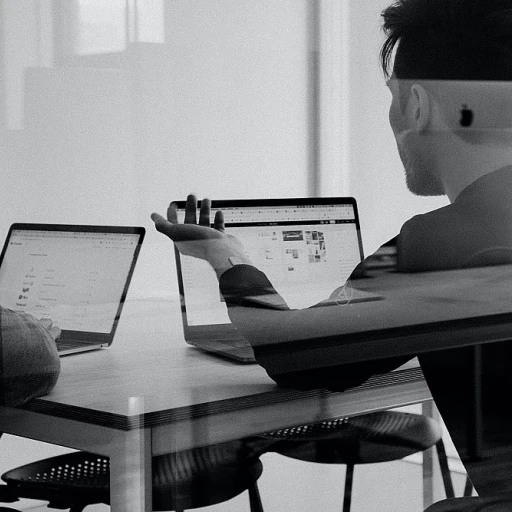
Understanding the need for advanced learning evaluation
Why Traditional Learning Assessments Fall Short
In today’s fast-evolving workplace, relying solely on traditional assessments to evaluate learning outcomes is no longer enough. The classic approach—using standardized tests or basic feedback forms—often misses the nuances of how employees and students truly absorb knowledge and develop skills. With the rise of technology and new teaching methods, organizations and educators are seeking more comprehensive ways to measure the impact of training and educational experiences.
The Shift Toward Holistic Evaluation
Modern learning environments demand a broader view of evaluation. It’s not just about what students or employees remember, but how they apply critical thinking, problem solving, and soft skills in real-world scenarios. Interactive assessments, collaborative learning, and skills evaluation now play a central role in understanding the effectiveness of teaching learning strategies. These approaches provide richer insights into student engagement and knowledge retention, helping to enhance student performance and future readiness.
Key Benefits of Advanced Learning Evaluation
- Captures a wider range of learning experiences, including project-based learning and real-time feedback
- Supports diverse learning styles and adapts to individual needs
- Improves the accuracy of performance evaluation for both students and employees
- Enables educators and HR professionals to refine teaching methods and training programs
Adapting to the Modern Classroom and Workplace
As organizations invest in cutting edge educational technology, the classroom and workplace are becoming more dynamic. New strategies for learning evaluation must keep pace, focusing on both hard and soft skills, as well as the overall learning experience. This shift is crucial for preparing students and employees to meet the demands of the future workforce.
For a deeper look at how technology is transforming learning and performance in organizations, explore this resource on harnessing technology to boost organizational performance.
Key metrics for measuring learning effectiveness
Essential Indicators for Learning Success
Evaluating the impact of learning initiatives in human resources analytics requires a clear understanding of which metrics truly reflect progress. Traditional assessments often focus on test scores, but modern strategies emphasize a broader range of indicators to capture the full learning experience. By tracking the right metrics, educators and HR professionals can better understand how training programs influence both knowledge retention and practical skills development.
- Knowledge Retention: Measuring how well employees or students retain information over time is crucial. This can be assessed through follow-up quizzes, interactive assessments, or real-world application tasks.
- Skills Evaluation: Beyond theoretical knowledge, it’s important to evaluate soft skills, problem solving, and critical thinking. Observational assessments and scenario-based learning can provide deeper insights into these areas.
- Performance Improvement: Tracking changes in job performance or classroom outcomes before and after training helps determine the effectiveness of educational strategies and teaching methods.
- Student Engagement: Monitoring participation rates, feedback, and engagement levels during training or in the classroom can highlight which approaches resonate best with different learning styles.
- Learning Outcomes: Setting clear, measurable objectives for each learning experience allows for more precise evaluation of whether the intended outcomes are being achieved.
Combining these metrics with technology-driven tools enables a more comprehensive view of educational impact. For example, digital platforms can track engagement and provide real-time feedback, while collaborative learning environments foster peer-to-peer assessments and enhance student involvement. These approaches not only improve the accuracy of evaluations but also support the continuous improvement of teaching learning strategies.
To further explore how effective measurement can drive better results, consider reading about enhancing sales messaging for better results, which demonstrates the value of targeted feedback and performance tracking in professional development.
Ultimately, selecting the right mix of key metrics and assessment types is essential for maximizing the benefits of training and education in both traditional and cutting edge learning environments. This foundation supports the adoption of more advanced, personalized, and data-driven evaluation strategies discussed throughout this article.
Leveraging data-driven tools for deeper insights
Harnessing Technology for Richer Learning Assessments
In today’s HR landscape, technology is transforming how organizations evaluate learning outcomes and employee performance. Data-driven tools are now at the heart of educational evaluation, enabling educators and HR professionals to move beyond traditional assessments and gain deeper insights into learning experiences. Interactive assessments and adaptive platforms allow for real-time feedback, helping to enhance student engagement and knowledge retention. These tools can track a wide range of metrics, from soft skills and problem solving to critical thinking and collaborative learning. By analyzing this data, organizations can tailor training and teaching methods to better match diverse learning styles and needs. Key benefits of leveraging technology in learning evaluation include:- Personalized feedback for students and employees, supporting continuous improvement
- Automated skills evaluation, reducing manual workload for educators
- Data visualization dashboards that provide clear insights into performance and learning outcomes
- Support for various types of assessments, including project-based learning and interactive experiences
Personalization in learning assessment
Tailoring Assessments to Individual Learning Styles
Personalization in learning assessment is transforming how organizations and educators evaluate skills and knowledge retention. By recognizing that each student or employee has unique learning styles, training programs can be adapted to maximize engagement and performance. Interactive assessments, for example, allow for real-time feedback and adapt to the learner’s pace, providing a more accurate picture of learning outcomes.Key Benefits of Personalized Evaluation
- Enhanced student engagement: Personalized strategies increase motivation and participation in both classroom and workplace settings.
- Improved knowledge retention: Tailored assessments help reinforce learning experiences, making it easier for students and employees to recall and apply new skills.
- Better skills evaluation: Customizing evaluation methods ensures that both soft skills and technical abilities are measured effectively, supporting holistic development.
Leveraging Technology for Adaptive Assessments
Technology plays a crucial role in enabling personalized learning evaluation. Data-driven platforms can analyze performance data to recommend specific types of assessments, such as problem solving tasks or collaborative learning projects. These tools also support formative feedback, allowing educators and HR professionals to adjust teaching methods and training strategies in real time.Supporting Critical Thinking and Future Skills
Personalized assessments are not just about measuring current knowledge. They also foster critical thinking and problem solving, which are essential for the future of education and work. By providing varied learning experiences and adaptive feedback, organizations can better prepare employees and students for evolving challenges.Examples of Personalized Learning Assessment Strategies
| Assessment Type | Key Benefits | Application |
|---|---|---|
| Interactive assessments | Real-time feedback, higher engagement | Online training modules, digital classrooms |
| Project-based assessments | Critical thinking, collaborative learning | Team projects, workplace simulations |
| Skills-based assessments | Targeted skills evaluation, personalized learning paths | Role-specific training, competency mapping |
Overcoming challenges in implementing new evaluation approaches
Common Barriers to Modern Learning Evaluation
Introducing innovative strategies for learning evaluation in HR analytics often comes with its own set of challenges. Organizations aiming to measure learning impact more effectively can encounter obstacles related to technology, data quality, and cultural resistance. Understanding these barriers is essential to develop robust solutions that enhance student engagement, knowledge retention, and overall performance.
- Data Integration Issues: Many HR systems are fragmented, making it difficult to consolidate training and assessment data. This fragmentation can limit the ability to analyze learning outcomes across different types of educational experiences.
- Limited Technology Adoption: While cutting edge tools exist for interactive assessments and skills evaluation, not all organizations have the infrastructure or expertise to implement them. This can hinder the shift toward more personalized and collaborative learning experiences.
- Resistance to Change: Educators and employees may be accustomed to traditional teaching methods and evaluation processes. Shifting to data-driven, based assessments or new teaching learning strategies requires buy-in and ongoing support.
- Measuring Soft Skills: Critical thinking, problem solving, and other soft skills are vital for future-ready employees, but they are harder to quantify compared to technical skills. Developing reliable assessments for these competencies remains a significant challenge.
- Ensuring Data Privacy: Collecting detailed feedback and performance data raises concerns about privacy and ethical use. Organizations must establish clear policies to protect student and employee information during the evaluation process.
Strategies to Address Implementation Challenges
To overcome these hurdles, organizations can adopt several practical approaches that support effective learning evaluation and enhance student outcomes:
- Invest in Unified Platforms: Choosing integrated HR analytics solutions helps centralize data from various training and classroom activities, making it easier to track learning styles, experiences, and outcomes.
- Promote a Culture of Continuous Improvement: Encouraging educators and employees to embrace new educational technologies and feedback mechanisms fosters a more adaptive learning environment.
- Develop Clear Communication Channels: Transparent communication about the benefits and goals of new evaluation strategies can reduce resistance and improve engagement with interactive assessments and collaborative learning.
- Leverage Adaptive Assessment Tools: Utilizing technology that supports personalized, based learning and skills evaluation ensures that assessments are relevant to individual needs and learning paths.
- Prioritize Data Security: Implementing strong data governance policies protects sensitive information and builds trust among all stakeholders involved in the learning experience.
By proactively addressing these challenges, organizations can unlock the key benefits of advanced learning evaluation, such as improved performance, enhanced student engagement, and more effective teaching methods. These efforts lay the groundwork for future innovations in HR analytics and educational assessment.
Future trends in learning evaluation within HR analytics
Emerging Technologies Shaping Learning Evaluation
The future of learning evaluation in HR analytics is being shaped by rapid advancements in technology and evolving educational needs. As organizations strive to enhance student engagement and knowledge retention, new tools and strategies are emerging to provide more accurate and actionable insights into learning outcomes.
Adaptive and Interactive Assessments
One of the most significant trends is the rise of adaptive and interactive assessments. These tools adjust in real time to the learner’s performance, offering a personalized learning experience that addresses individual learning styles and skill levels. This approach not only supports better skills evaluation but also helps educators and trainers identify gaps in problem solving and critical thinking abilities.
Data-Driven Personalization
Data analytics is enabling a shift toward more personalized educational experiences. By analyzing data from various types of assessments, organizations can tailor training programs to meet the unique needs of each student or employee. This personalization enhances the effectiveness of teaching methods and supports the development of both technical and soft skills.
Collaborative and Project-Based Learning
Future strategies are also focusing on collaborative learning and project-based learning experiences. These methods encourage teamwork and real-world application of knowledge, which are essential for developing critical workplace skills. By evaluating performance in these contexts, HR professionals can gain deeper insights into employee capabilities and potential for growth.
Continuous Feedback and Real-Time Evaluation
Continuous feedback mechanisms are becoming a key benefit in modern learning evaluation. Real-time feedback allows students and employees to adjust their learning strategies immediately, leading to improved performance and greater knowledge retention. This ongoing evaluation process supports a culture of continuous improvement within the classroom and the workplace.
Preparing for the Future of Education and Work
As the landscape of education and training continues to evolve, staying ahead with cutting edge evaluation strategies is crucial. Embracing technology, interactive assessments, and data-driven personalization will empower organizations to provide meaningful learning experiences and drive better outcomes for both students and employees.













